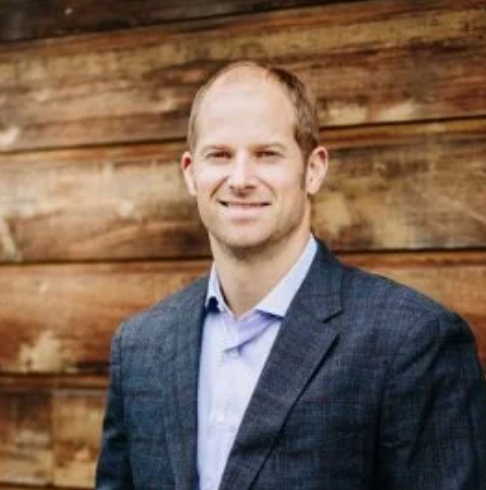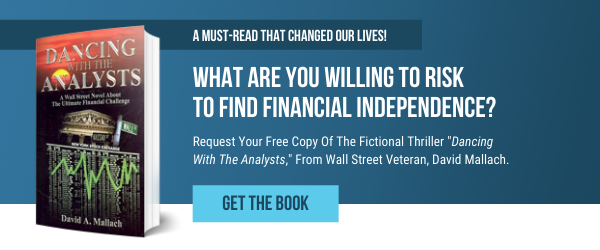I’ve been thinking about referrals lately: how to ask for them, whom to ask, when, etc., etc. There are like 17,000 ways out there to ask for referrals: “Ask!” “Don’t ask!” and everything in between. I don’t want this to turn into a how-to piece because how you ask for referrals is up to you.
Let it be said that you must have a process that works, that’s repeatable, and that you will not abandon after a period of time. (“Worked so well, I stopped doing it!” Does that sound familiar? I’ve been down that road myself.)
What Makes a Financial Advisor Referrable?
More interesting to me, is the question of how one becomes referrable.
Before you even consider asking for a referral, you need to have a basis for doing so. Because asking for referrals tests the strength of a relationship. How does a relationship get stronger? Through honest, sometimes awkward conversations. Through vulnerability. Of both parties, not just the client.
You know how some advisors keep things light and airy; they love small talk. I’ve personally never been a fan of small talk. You can talk about the weather or your last vacation for only so long.
Build a Rapport of Honesty and Open Communication
Recently I got a call from a client.
“Ben, I really need to talk to you,” he said.
He sounded pressured as he described what he needed. “I’m trying to make a big decision, working from home, three screaming kids in the background, I just don’t have the time or patience to get into really deep analysis and your team is giving me lots of details I can’t process right now.”
Essentially, he needed a short answer, and what he’d received from us was more than the simple “yes or no” that he was looking for at this moment.
We had a conversation, during which I was able to answer his question and apologize for the fact that in trying to be of service we had unwittingly given him a drink from a fire hose. He was gracious about it.
At the end of the call, I said, "Look, I know you mentioned it was not a big deal that we didn’t pick up on your stress. I want you to know how much I appreciate you bringing this to my attention because I think a lot of people have trouble expressing how they really feel. They'll just sit on something in a relationship instead of having the courage to bring it up. And I'm saying that from a place of wanting to be better, because if I don't know what's troubling you, then it doesn't do anything positive for our relationship.”
It ended up being a great exchange. He felt heard. I felt good about being able to learn and grow from his feedback. I acknowledge that it may have been difficult for him to bring up a service issue with me. I know because I know how I feel about voicing my own feedback at times. I also know how hard it is to receive feedback.
But if I want to grow as a person and as a professional, I need to be OK with being open in both giving and receiving. Because that’s where relationships are truly forged. This particular incident was powerful for me, as it reminded me yet again of the kinds of relationships I want to have with our clients: honest ones.
Embrace the Discomfort of Deep Questions
If you want to get closer to your clients, it’s worth experiencing the discomfort of going deep.
Going deep means asking questions that may produce answers that are unknown to you. Answers that may surprise you. That’s the whole point! Going deep is something that the majority of advisors don’t do enough of, if at all.
Again, I am saying this from personal experience. Why don’t we ask the tough questions? Because a part of us may be afraid of the answers. Yet when this level of dialogue takes place, that’s when the relationship is cemented.
Ready to give this a shot? If you’re serious about becoming referrable, here are some questions you may ask your clients. And remember, just asking isn’t enough. Once you hear the answer, you must be prepared to do something with the response.
4 Questions to Build Trust and Earn Client Referrals
#1: What’s Working Well in Our Client-Advisor Relationship?
It’s common for advisors to work hard on areas that may not be of equal importance to the client while neglecting others that are. It’s important to inquire whether your service model is working for the client.
Imagine if you were running a restaurant without a menu, and you gave everyone a steak thinking, “Well who doesn’t love steak?” Until one day you ask how they like the steak, and some of the patrons tell you they’re vegetarians.
It’s worth it to discover what it is that they love about you. Plus, this is an easy question, it’ll warm things up as you work your way through some of the other ones.
#2: How Can We Improve Your Experience with Us?
This is basically the reverse of Q1, and it’s a tough one.
Remind yourself, whatever they say, you will grow from their answer. If you want to be better, you can’t take their comments personally. Even if the comments are about you, personally. You will grow because no one is perfect.
Also, clients may be coy. We have been conditioned to hold back our criticism. You may need to press them to say something. Stay on task, it’s important that you get an answer that points to an area of improvement, however small.
#3: What Do You Appreciate About Other Financial Advisors You’ve Experienced?
This is a great question because it helps you calibrate against other people they may still be working with.
We all know that clients often have a team of advisors. You should know of and know all these people. But the key thing is for you to know what exactly the client likes about each of them. You may learn about ways you can enhance your service model.
#4: What Could Your Other Advisors Do Better to Serve You?
Again, this question yields enormously valuable information.
You may find out that their relationship isn’t as good as you thought it was, or maybe you’ll discover that the relationship with their CPA or other financial advisor is much stronger than you initially imagined.
These are all questions we as advisors should be asking our clients when we first meet them, and in regular intervals along the way because things change. If we’re honestly invested in a relationship, we want to check on its health intermittently, to show our commitment. We should let our clients know, from the start, that we will be checking in regularly.
Planting the Seeds for Authentic Referrals and Client Commitment
What now? Go do it!
Make an agreement with your client that you’ll be asking for a pulse check, and then show that you’re serious by following through on your part of the deal.
The trouble is when we expect clients to do things without having made a pact with them. Like expecting them to give us feedback or expecting them to give us referrals.
I like to remind clients that we know that we can’t be all things to all people. What I care about is being all things to some people, and those people are the kinds of clients we want to attract and grow within our practice.
If you plant this seed from the start and start walking the walk, you’ll find that when you do finally ask for referrals, you are not doing it from a place of expectation but from a place of honesty and closeness — the real source of strength in your advisor-client relationship.
Ben Beck, CFP® is Managing Partner & Chief Investment Officer at Beck Bode, a deliberately different wealth management firm with a unique view on investing, business and life.

 Benjamin Beck, CFP®
Benjamin Beck, CFP®